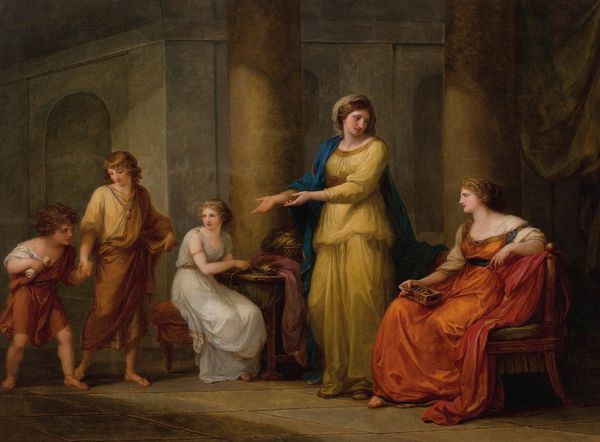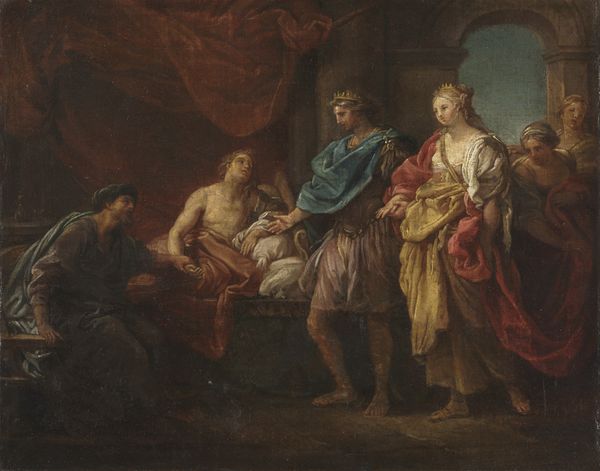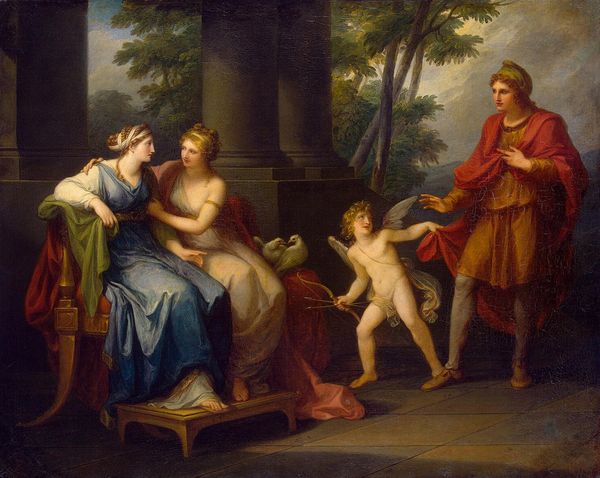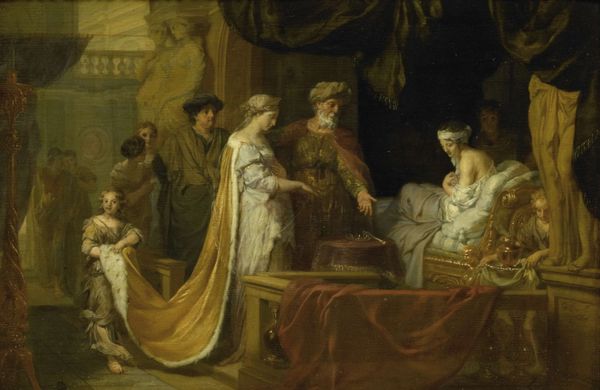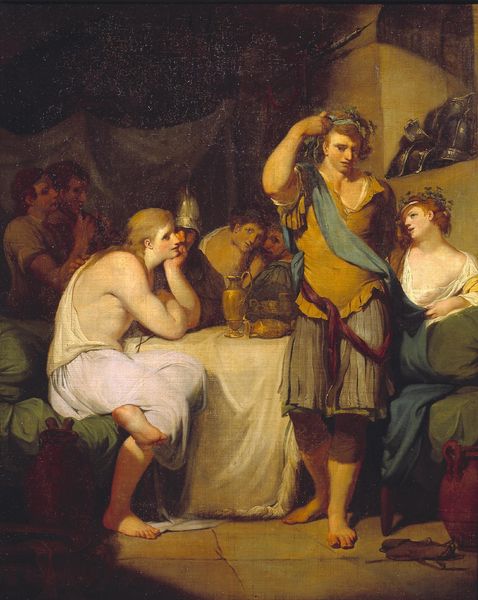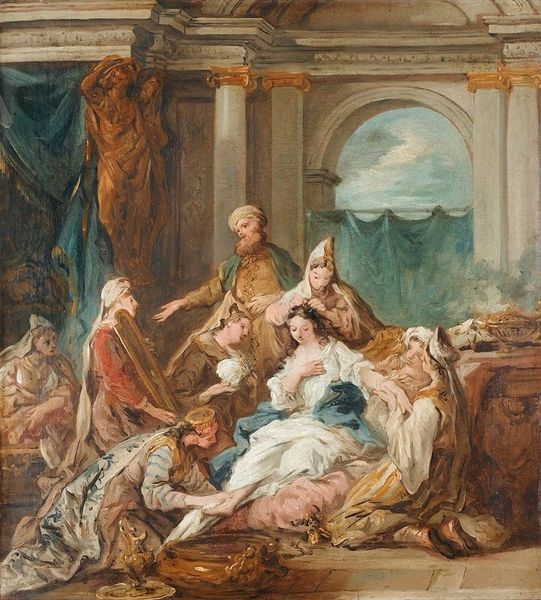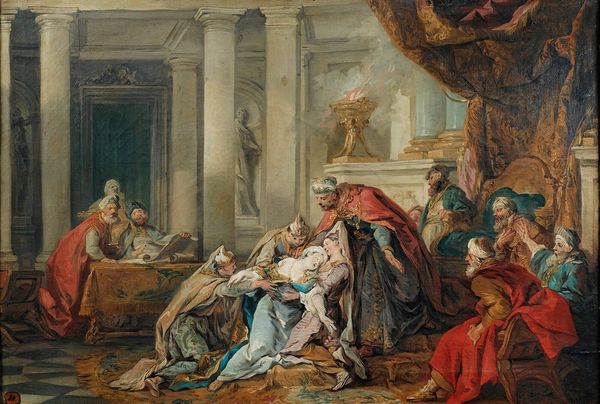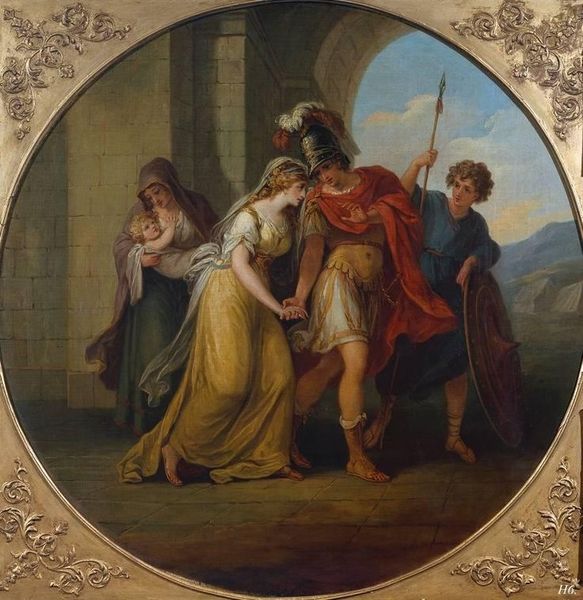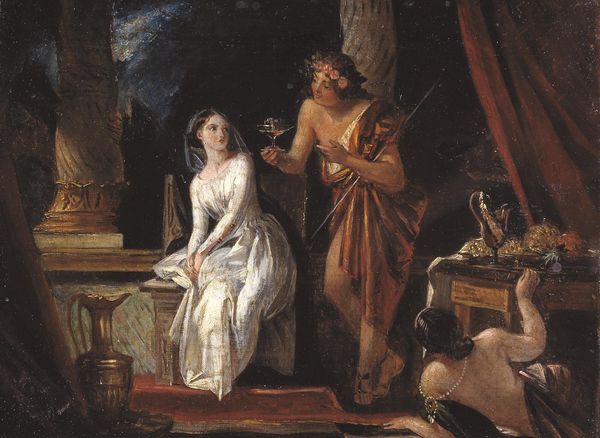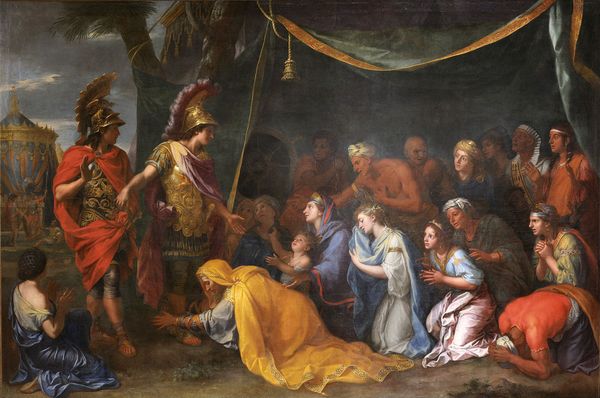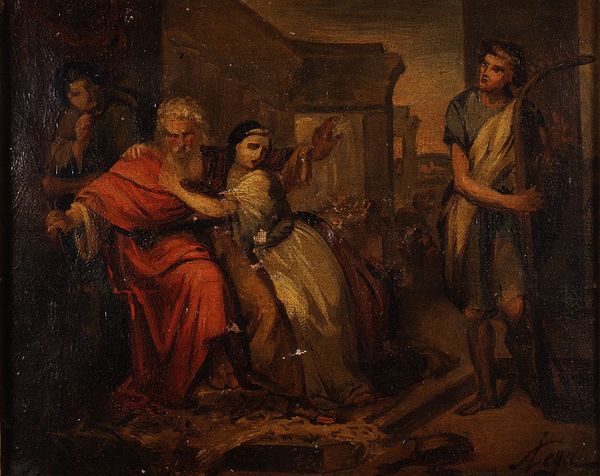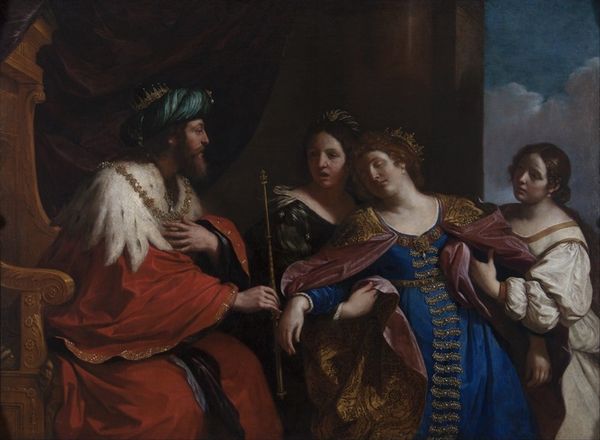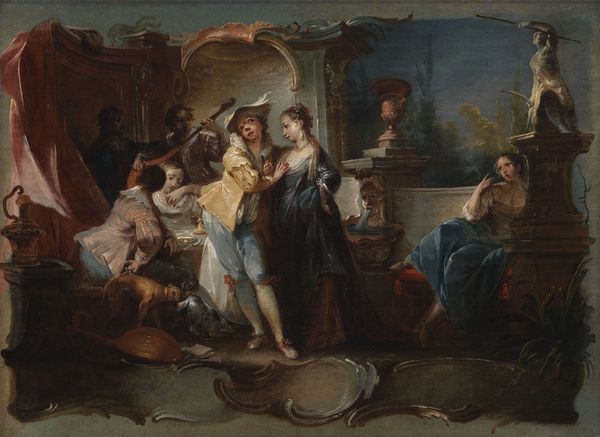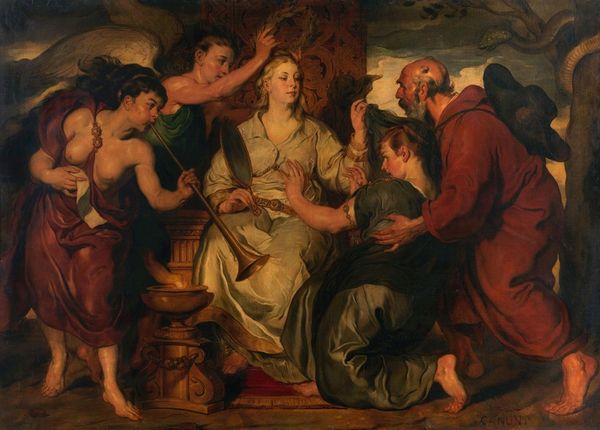
painting, oil-paint
#
neoclacissism
#
allegory
#
painting
#
oil-paint
#
landscape
#
history-painting
Copyright: Public domain
Curator: Standing before us is "Hector Upbraiding Paris for His Retreat from Battle" by Angelica Kauffmann. It’s an oil painting showcasing a pivotal moment from the Iliad. Editor: My first thought? Someone is definitely in trouble. It's dramatic! There's a wonderful tension, a domestic space turned battlefield of emotions. And the colors, while muted, feel like they’re about to burst into flame. Curator: Indeed. Kauffmann, deeply entrenched in the Neoclassical movement, employs classical allegory and compositional devices here to highlight morality, duty, and the cost of personal failings. Notice the architectural background; the classical order as setting, creating context, yet seemingly unable to restrain familial disorder. Editor: The setting is beautiful, like a stage, yet also claustrophobic somehow. I think my eyes keep circling back to Paris’s limp bow—he looks more like a scolded child than a prince and a warrior. He embodies shame and languid self-absorption. Curator: Precisely. The bow acts as a potent symbol here, reflecting Paris’s dereliction of his heroic responsibilities. The figure of Hector represents resolute duty and fraternal reprimand. Kauffman's training under Neo-classicists, such as Winckelmann, further explores contrasts between the passions and rationality. Editor: What resonates most is Hector's protective stance, isn’t it? He embodies honor. It’s brotherly love and duty battling against what feels like pure, indulgent ego on Paris’s part. I can almost hear the shouting match. Though I am drawn towards the women sitting in the background, the composition leads them to look unbothered, but do you think there is meaning in that? Curator: It's an interesting addition: they seem unphased, almost, a stark reminder of domestic life and the personal impact of political conflict—weaving and spinning representing their feminine virtues against the destructive whims of men. Editor: Well, I'm off to reread the Iliad now. Angelica Kauffmann, thank you for adding a dash of feminist reflection with a flair! It’s clear that beyond a moment in the story of Paris and Hector, it invites broader themes of personal responsibilities vs collective identity, inner virtue vs vice. Curator: Agreed. It's an eternal drama in colors; and she gave it life.
Comments
No comments
Be the first to comment and join the conversation on the ultimate creative platform.
